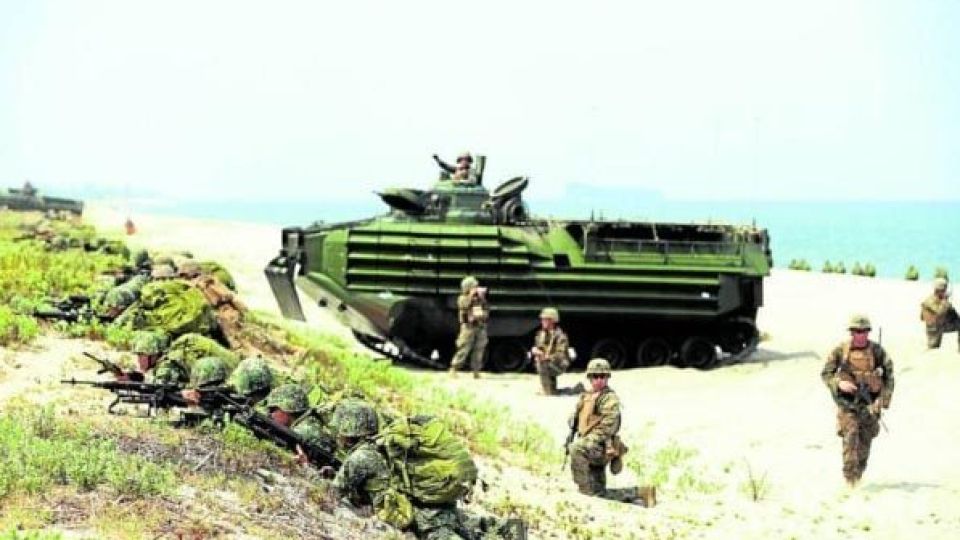April 6, 2023
MANILA – The Marcos administration announced an additional four new Enhanced Defense Cooperation Agreement (Edca) sites where United States military forces will be stationed on rotation in our country. Three of the new sites are in the Northern Luzon provinces of Cagayan and Isabela; locations obvious in their proximity to Taiwan, which is a looming source of military conflict between the US and China. One new site is in Palawan, which is near the sea territory disputed between China and the Philippines. With these new locations, there will be a total of nine Edca sites in our country.
The disclosure of the new sites brings to the spotlight again the issue of where does our country’s interest lie in the evolving conflict between China and the US. Stripped of sugarcoating, both the Philippines and the US have their respective self-interest in mind as reason for wanting US military forces in our country. The US self-interest is to stop China from invading Taiwan and from limiting freedom of navigation and overflight in the West Philippine Sea (WPS). The Philippine self-interest is to deter China from controlling the vast sea territory and islets that comprise our exclusive economic zone (EEZ), and which is within the WPS. Do these self-interests converge at any level? Will the US desire to maintain freedom of navigation in the WPS help the Philippines in preventing China from annexing our EEZ?
The US has affirmed that it will defend the Philippines if our military forces come under “armed attack.” The US commitment does not extend to China’s occupation and building of military installations within our EEZ, however, because our EEZ is not legally part of Philippine territory but merely an area over which we have sovereign rights to exploit.
China has also so far confined its harassment against our security forces by using water cannons, laser beams, as well as shadowing and doing illegal maneuvers against them. Unlike its violent attack against Vietnamese forces when it seized control of the Paracel islands, China has limited itself to nonarmed attacks against the Philippines, depriving the US—and giving the US—an excuse not to fulfill its treaty obligation to defend the Philippines. China has learned that it still gets all that it wants from us by merely resorting to nonarmed attacks.
China’s nonarmed attack tactics and its occupation of WPS islets will not likely be the trigger that will make the US come to our aid. These tactics will only prompt US intervention if and when they become so expansive as to inhibit freedom of navigation and overflight of the US and its close allies in the WPS.
What about aligning ourselves closer to China in order to nudge the latter to avoid hostility against us? We’ve seen how disastrous that option has been when the Duterte administration ended up with nothing to show for its fawning behavior toward China. The Middle Kingdom continued to antagonize our fishermen and security forces in our EEZ.
What about officials who are against the new Edca sites because they want to attract more Chinese government investments? With China’s misdeeds in our EEZ, these officials are like a businessperson who still eagerly invites China to be his business partner in a new warehouse facility even while China has stolen possession of an existing warehouse exclusively owned by the businessperson. To be more graphic, it’s like a father who wants to expand business with someone who is raping his daughter.
If China invades Taiwan, will it attack the Edca sites just like what Japan did to US military stations in our country during World War II? Or will China be like Russia in its ongoing war in Ukraine, which has confined its military campaign on Ukrainian soil, and has desisted from attacking neighboring countries that supply weapons to Ukraine?
With the current economic and political turmoil already being caused worldwide by the Russia-Ukraine war, do the US and China have an appetite to foment another war that will cause even more hardship and chaos around the world?
Our government faces a very difficult task as it maneuvers to assert our nation’s welfare in the midst of the colliding self-interest of the two superpowers. We play a unique role that has the potential of helping tip the balance between the two. Even with the risks involved, we face an opportunity camouflaged as a crisis that can improve our country’s lot if our government strongly asserts our country’s interest.


